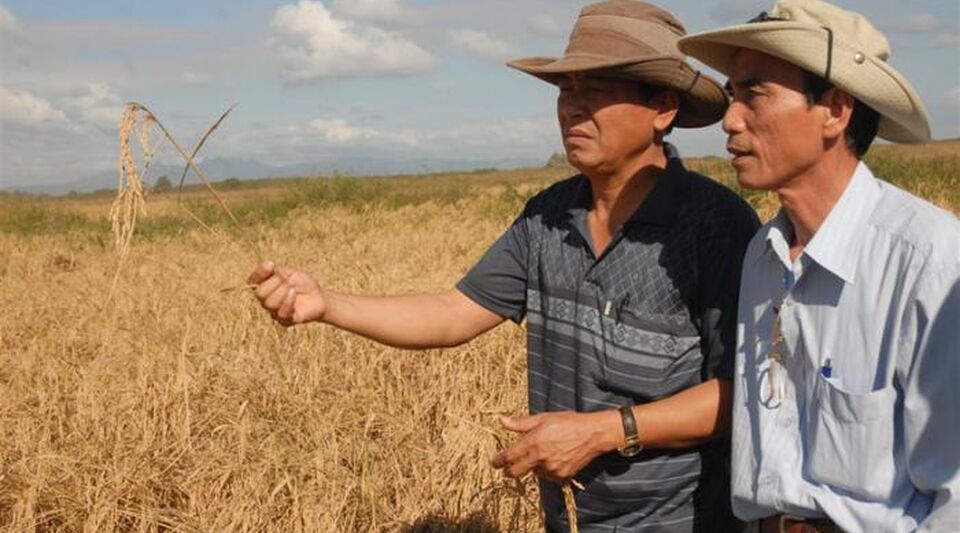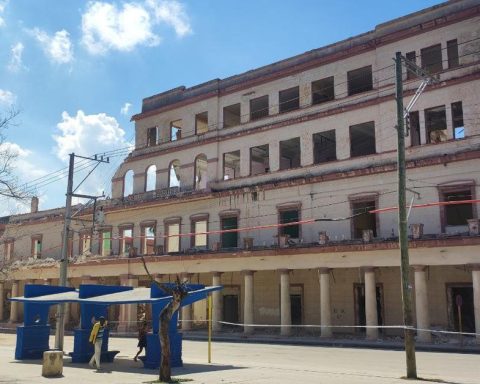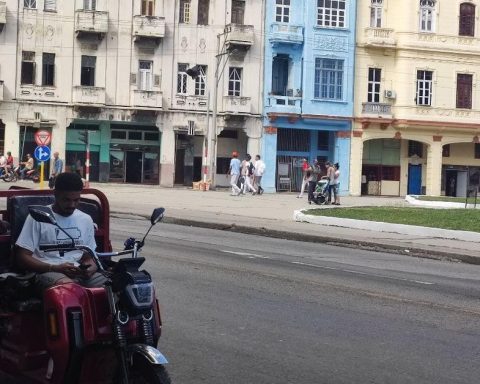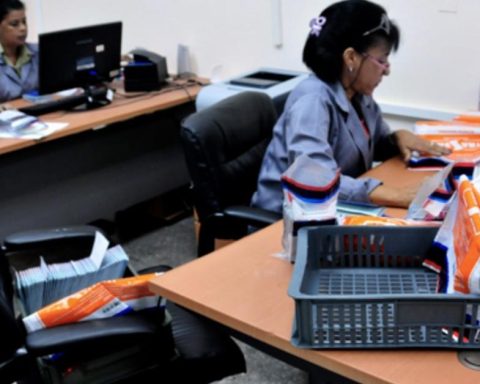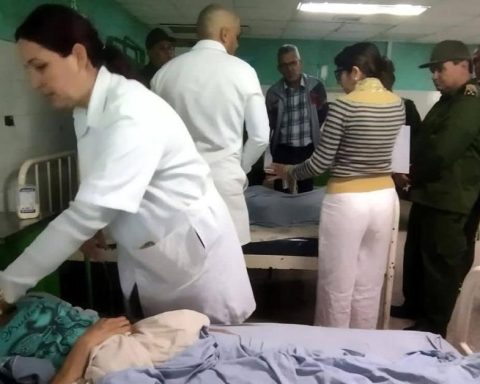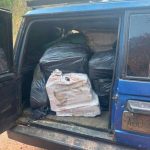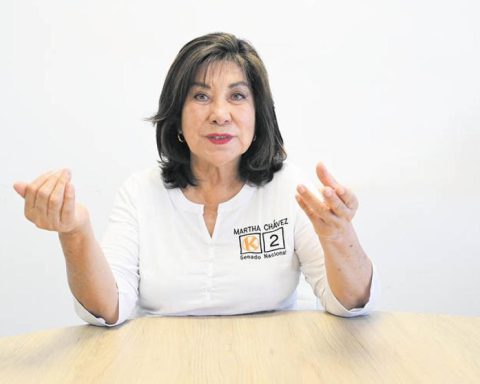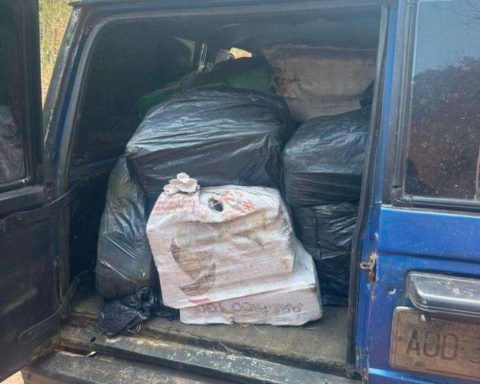The residents of La Sierpe, in Sancti Spíritus, glued their eyes and ears to national television this weekend as the news of the official visit of high-ranking Cuban officials to Vietnam was broadcast.
The tone of the note issued by the Ministry of Foreign Affairs he was exalted. “For Vietnam we remain willing to give up our blood,” Roberto Morales Ojeda, a member of the Communist Party’s Political Bureau and former Minister of Public Health, said in Ho Chi Minh City.
What many residents of La Sierpe were waiting for was a mention that would give them hope for the return of the Vietnamese technicians, who in the middle of last year broke their collaboration agreement with the Island to support rice production in the area and packed their bags. never to return.
“With the departure of the Vietnamese, we all lost,” laments Diosdado, 68, who lives near the South of Jíbaro Grain Agroindustrial Company. “They arrived 20 years ago but they got tired, because this was worse than plowing in the sea, it was plowing inefficiency,” stresses the farmer, one of the producers in the municipality that benefited from the agreement between the two countries.
“They arrived 20 years ago but they got tired, because this was worse than plowing in the sea, it was plowing inefficiency”
The collaboration project began in 2002 and, in addition to providing equipment and machinery to Cuban producers, during this time it kept dozens of Vietnamese specialists and technicians in Cuba. The La Sierpe area was the main bet of this collaboration and in its plain dykes were built, channels were cleaned and local specialists were trained.
But, over the years, the performance of the rice fields failed to meet the expectations of the Vietnamese, who also had to deal with the clumsy state bureaucracy, the lack of a stable supply of fuel, and the inefficiency of the Agroindustrial Company. . The final blow to the relationship occurred last year, when the hydrocarbons crisis deepened.
“The Vietnamese technicians demanded a fuel quota to keep working, advising and directly connected with what was happening in the fields,” he told 14ymedio Diosdado. “But the amount they needed almost never arrived, until they were told that they had to take care of being self-sufficient and that they had to buy it abroad and bring it.”
In the end, “the Vietnamese party did not renew the contract when it was time to do so, as had been done in previous years, and the technicians left,” an employee from the administrative area of the Agroindustrial Company told this newspaper. “The bosses gathered us earlier this year to tell us that the Vietnamese were leaving, but the Communist Party warned us that nothing could be said about what had happened.”
The company’s national employees were faced with a problem. “You had to run to look for peasants in the area who wanted to request part of the rice-growing area for usufruct, in order to save the current campaign, but you couldn’t tell them why the Vietnamese were no longer there,” explains the state worker.
“Now we are in the middle of a dispute with the foreign party because they say that since the agreement was not renewed, they are going to take a lot of the equipment they had brought back to their country”
“But things have not stopped there, now we are in the middle of a dispute with the foreign party because they say that since the agreement was not renewed, they are going to take a lot of the equipment they had brought back to their country,” he says. “Without these machines, the rice harvest almost completely falls, we go back in time.”
In the nearby Basic Unit of Cooperative Production (UBPC) Mapos, which was also part of the project, some affiliated producers feel the departure of the Vietnamese as the prelude to the collapse of the sector in Spiritus territory. “What had been achieved was due to their insistence and diligence,” admits a local farmer who prefers to remain anonymous. “They were very insistent people, who from the moment they got up were in the furrow and knew every step of this crop.”
“The performance has been greatly improved since they arrived,” admits the farmer. “Now we hardly exceed three tons of grain per hectare, but when the project with the Vietnamese was at its best, back in 2015, they were able to extract up to five tons per hectare. It seemed that rice was not going well for us. to never be missing in the province and it is hard to believe the situation we are in now”.
In the agricultural markets of the Spirit this week, a pound of the cereal was sold for 160 pesos. “And it’s not even good rice, it has a high percentage of broken grains and customers buy it because there’s nothing else, but it’s a product that looks more like animal feed than to put on the table at home,” he points out.
In the port of Nuevitas, Camagüey, another employee of the commercial department confirms that “the Vietnamese took out a good part of the rice that was harvested in La Sierpe around here to export it, it was part of the agreement: that they kept a percentage of the harvest and They sold it on the international market. According to this source, the Cuban side’s non-payments were due to tons of the product that remained for national consumption but the expense to Vietnam was never compensated.
“The seeds did not arrive on time, there is no fuel to irrigate or to move the workers, not to mention fertilizers”
In December of last year, when the Vietnamese had already left, the official press alluded to the debacle that the sector was experiencing and predicted that for the cold season they aspired to sow only about 7,500 hectares of the up to 13,000 that they had reached with the Vietnamese collaboration. They added that La Sierpe had been “hit” by a “contraction of resources that endangers the subsistence of the scenario with the best development in Cuba for the cultivation of cereals.”
“Of the 7,500 hectares foreseen in the cold planting plan until February, around 2,600 hectares are protected with part of the resources, for the rest there are no inputs; the producers and the productive bases are going to risk planting the area with alternatives of biological means”, recognized then Edemir Hernández Meneses, productive technical director of the Agroindustrial Company.
The reality seems to have further sunk the bad forecasts. “The seeds did not arrive on time, there is no fuel to irrigate or to move the workers, not to mention fertilizers. There were peasants who risked planting without knowing if they would be able to get what was necessary to achieve the harvest, but the The majority said no, that you can’t grow rice that way,” says Diosdado.
“Today’s visit to the Coop Mary market and the Smart N Green Joint Stock Company farm shows us how much more we can do in Cuba,” Morales Ojeda enthusiastically posted Monday from Vietnam on his Twitter account. Thousands of kilometers from there, in the plains of Sancti Spíritus, the rice farmers also know what to do but do not have the resources to achieve it.
________________________
Collaborate with our work:
The team of 14ymedio He is committed to doing serious journalism that reflects the reality of deep Cuba. Thank you for accompanying us on this long road. We invite you to continue supporting us, but this time becoming a member of our newspaper. Together we can continue transforming journalism in Cuba.
